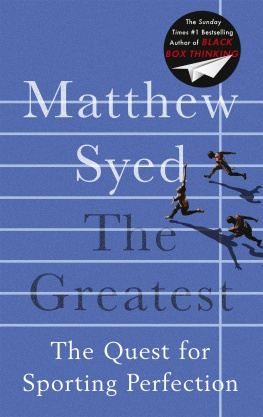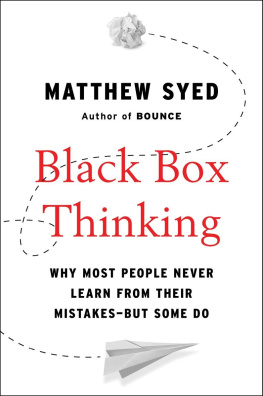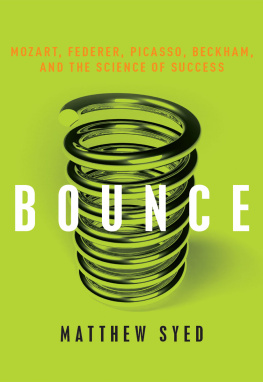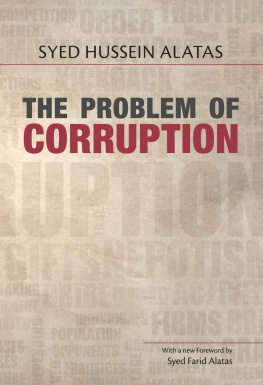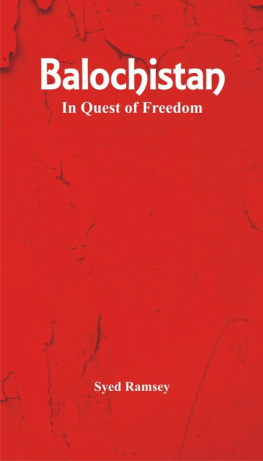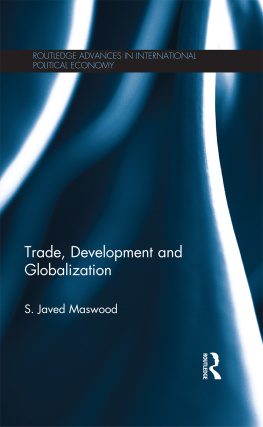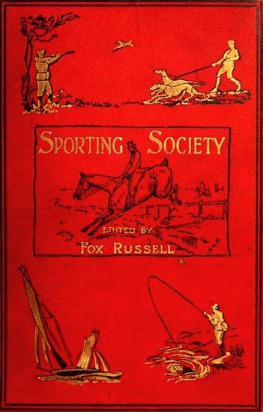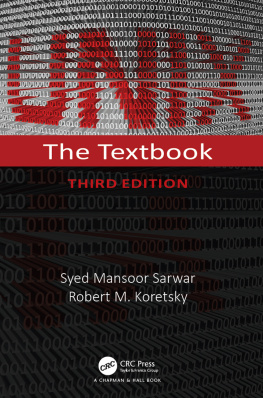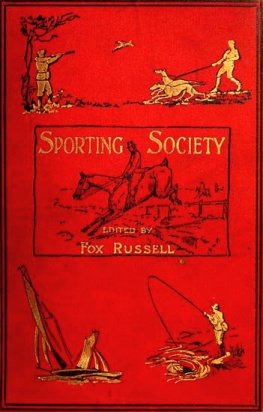Matthew Syed - The greatest : the quest for sporting perfection
Here you can read online Matthew Syed - The greatest : the quest for sporting perfection full text of the book (entire story) in english for free. Download pdf and epub, get meaning, cover and reviews about this ebook. year: 2017, genre: Romance novel. Description of the work, (preface) as well as reviews are available. Best literature library LitArk.com created for fans of good reading and offers a wide selection of genres:
Romance novel
Science fiction
Adventure
Detective
Science
History
Home and family
Prose
Art
Politics
Computer
Non-fiction
Religion
Business
Children
Humor
Choose a favorite category and find really read worthwhile books. Enjoy immersion in the world of imagination, feel the emotions of the characters or learn something new for yourself, make an fascinating discovery.
- Book:The greatest : the quest for sporting perfection
- Author:
- Genre:
- Year:2017
- Rating:4 / 5
- Favourites:Add to favourites
- Your mark:
- 80
- 1
- 2
- 3
- 4
- 5
The greatest : the quest for sporting perfection: summary, description and annotation
We offer to read an annotation, description, summary or preface (depends on what the author of the book "The greatest : the quest for sporting perfection" wrote himself). If you haven't found the necessary information about the book — write in the comments, we will try to find it.
Matthew Syed: author's other books
Who wrote The greatest : the quest for sporting perfection? Find out the surname, the name of the author of the book and a list of all author's works by series.
The greatest : the quest for sporting perfection — read online for free the complete book (whole text) full work
Below is the text of the book, divided by pages. System saving the place of the last page read, allows you to conveniently read the book "The greatest : the quest for sporting perfection" online for free, without having to search again every time where you left off. Put a bookmark, and you can go to the page where you finished reading at any time.
Font size:
Interval:
Bookmark:
Also by Matthew Syed
Bounce: The Myth of Talent and the Power of Practice
Black Box Thinking: Marginal Gains and the Secrets of High Performance
The Greatest
Matthew Syed
JOHN MURRAY
www.johnmurray.co.uk
First published in Great Britain in 2017 by John Murray (Publishers)
An Hachette UK company
Copyright Matthew Syed 2017
By kind permission of Times Newspapers Ltd.
The right of Matthew Syed to be identifi ed as the Author
of the Work has been asserted by him in accordance with
the Copyright, Designs and Patents Act 1988.
All rights reserved. No part of this publication may be reproduced,
stored in a retrieval system, or transmitted, in any form or by any
means without the prior written permission of the publisher, nor be
otherwise circulated in any form of binding or cover other than that
in which it is published and without a similar condition being
imposed on the subsequent purchaser.
A CIP catalogue record for this title is available from the British Library
ISBN 978-1-47365-367-2
John Murray (Publishers)
Carmelite House
50 Victoria Embankment
London EC4Y 0DZ
www.johnmurray.co.uk
For Evie and Teddy
Contents
Introduction
When I was in my teens, a careers adviser asked what I wanted to do for a living. When I said that was I interested in writing about sport, she smiled a little, as if to emphasise the naivety of such a hope. Sport isnt a career choice, she said emphatically. It probably wont be very big in twenty years time, anyway.
It is remarkable how common this view was three decades ago. Sport, it was thought, would be superseded by computer games, consoles and the futuristic vision of virtual reality. A new leisure age, driven by technological sophistication, was going to usher in recreational pursuits of which Nintendos Game Boy was considered a precursor.
Why would anyone wish to kick a football around a field when you could be transported into a scintillating alternative reality by immersing yourself in a computer program in your own living room? Children, in particular, were never going to bother with anything as pass as games using balls made from cork, leather or plastic.
And yet sport has demonstrated curious staying power. It has grown over recent decades, not diminished. There are many ways to calibrate this growth, such as the burgeoning space in national newspapers, the way that stories have become front-page news (rarely the case thirty years ago), and how television content, particularly football, has soared in value.
The question, however, is why? Why has sport, as a cultural institution, confounded the expectations of those who so confidently wrote it off? What has driven its growth in the teeth of myriad scandals, institutionalised cheating, and maladministration of a quite epic kind, not least within the Fdration Internationale de Football Association (FIFA) and the International Olympic Committee (IOC)? What are the internal qualities of sport that make it so durable and cross-culturally intoxicating?
This book of collected columns attempts to uncover some of the answers. It examines the way in which sport, while superficially frivolous, is underpinned by themes which are basic to the human condition: heroism, drama, competition, hierarchy, psychology, morality and, perhaps most important of all, the quest for greatness. How do we become the best that we can be, as individuals, teams, and organisations?
Back in 2012, Tim Hallissey, the sports editor of The Times , telephoned to suggest that I travel out to Ancient Olympia, the sanctuary in the Western Peloponnese where the original Olympics took place. It was a long trip, including getting lost on gravel roads with no signal to gain help from Google Maps, but it was, for me at least, a seminal experience.
Standing above the sanctuary on the slopes of Mount Kronos, one could glimpse sport from a fresh vantage point. This festival was a central aspect of Greek culture and unified the warring city states. Every four years, peace emerged so that athletes and spectators could travel to the Games. For almost 1,200 years, it took place without a single interruption. Virtually no other cultural festival can match this kind of staying power.
To put it a slightly different way, sport gripped the imagination of the ancient world, just as it grips the modern. Sport isnt, in that sense, a post-Romantic institution, one that started with the encoding of rules of play by Victorian schoolmasters and moralists, as is sometimes suggested. It didnt begin with the inauguration of FIFA, or the International Tennis Federation, or any of the other governing bodies which effectively operate as monopoly providers of the games that dominate todays landscape. No, sport is far more ancient and quintessential.
I was struck by a quote from Lucian , the great historian, who wrote about his infatuation for the Ancient Games: Oh, I cant describe the scene in mere words, he said. You really should experience first-hand the incredible pleasure of standing in that cheering crowd, admiring the athletes courage and good looks, their amazing physical conditioning, their unbeatable determination, and their unstoppable passion for victory.
Couldnt this have been written about a great sporting event today? Could it not have been written about the Wimbledon final, a long-awaited Champions League showdown or a fiercely contested Test match? Doesnt it capture why we go through the turnstiles and tune in on television? And, on the wider point, isnt it precisely because sport is simple and, in a certain sense, trivial that we can so clearly perceive its dramatic qualities? It seems to transport us to what is essential about competition and, yes, the nature of greatness, too.
There were many pioneering athletes in the ancient world through whom these themes were personified. Milo of Croton, an associate of Pythagoras, won five mens wrestling titles between 536 and 520 BC . Coroebus of Elis, a cook by profession, was the first Olympic champion by winning the stadion (200 metres). Leonidas of Rhodes was an all-rounder, winning the stadion, the diaulos (400 metres) and the hoplitodromos (400 metres while carrying heavy armour) at four straight games from 164 BC . Thats almost as many golds as Michael Phelps.
Today, sport continues to produce cultural icons. Few who have watched tennis can have failed to be moved by the beauty of Roger Federer, the gutsiness of Raphael Nadal or the indomitability of Novak Djokovic. In many ways, the rivalry between these three, joined more recently by Andy Murray, has provided peerless insights into how competition spurs innovation, a never-ending upward spiral as competitors dare each other to greater heights, a theme discussed in Part I.
Success is also about great teams. We have had powerful examples in sport, including the All Blacks, Manchester United under Sir Alex Ferguson, FC Barcelona, Leicester City and, rather improbably, the British womens hockey team, which won gold in Rio 2016. But how do teams become great? How do they combine seamlessly? As we will see, many of the insights of how humans combine are emerging from improvisational jazz. There are also powerful lessons to learn from aviation and the military.
We also look at the dynamics of intrinsic motivation, the fight, flight, freeze response, risk-taking, the ironies of self-belief, and the importance of resilience. We look at the techniques adopted by top athletes, coaches and scientists to build mental strength. Success, in sport as in life, often hinges on these elusive psychological factors.
My own sporting career provided a number of profound lessons about how success happens. When I became the England number one, around half of the top players in the country at that time didnt just come from the same town as me, or the same suburb, but the same street. It was a perfectly anonymous road, snaking a mile or so through the suburbs of Reading, but it was a ping-pong Mecca.
Next pageFont size:
Interval:
Bookmark:
Similar books «The greatest : the quest for sporting perfection»
Look at similar books to The greatest : the quest for sporting perfection. We have selected literature similar in name and meaning in the hope of providing readers with more options to find new, interesting, not yet read works.
Discussion, reviews of the book The greatest : the quest for sporting perfection and just readers' own opinions. Leave your comments, write what you think about the work, its meaning or the main characters. Specify what exactly you liked and what you didn't like, and why you think so.

